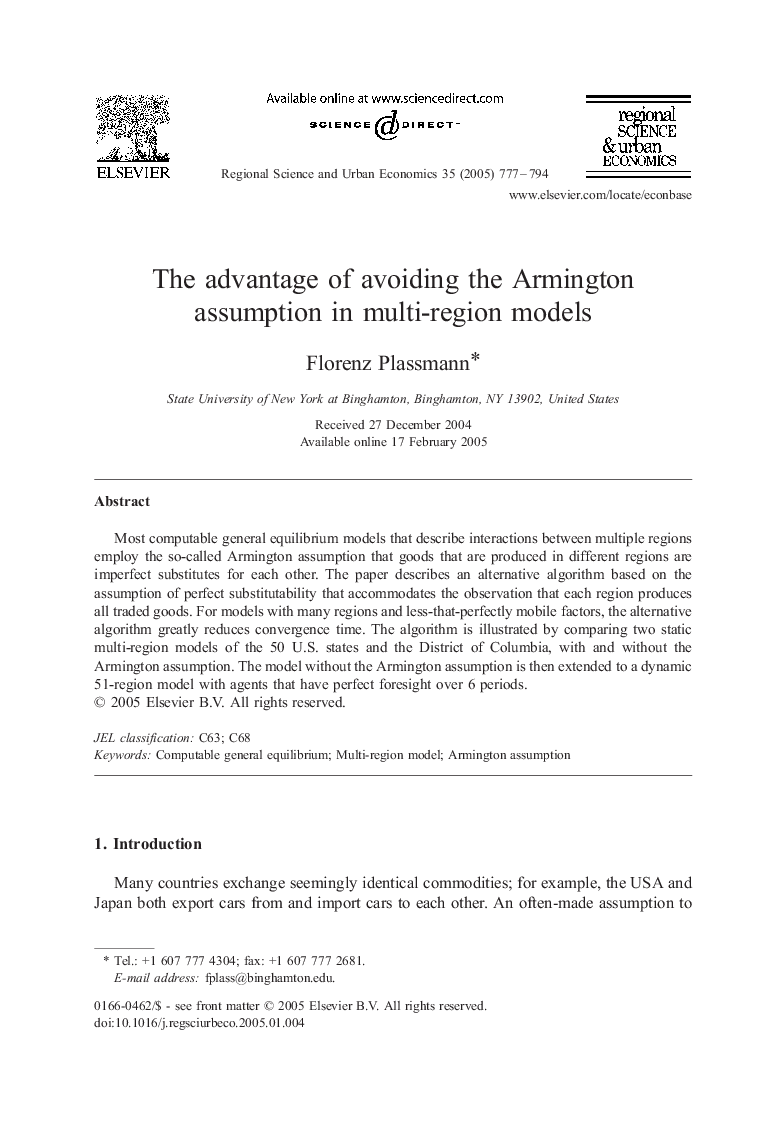| Article ID | Journal | Published Year | Pages | File Type |
|---|---|---|---|---|
| 10482464 | Regional Science and Urban Economics | 2005 | 18 Pages |
Abstract
Most computable general equilibrium models that describe interactions between multiple regions employ the so-called Armington assumption that goods that are produced in different regions are imperfect substitutes for each other. The paper describes an alternative algorithm based on the assumption of perfect substitutability that accommodates the observation that each region produces all traded goods. For models with many regions and less-that-perfectly mobile factors, the alternative algorithm greatly reduces convergence time. The algorithm is illustrated by comparing two static multi-region models of the 50 U.S. states and the District of Columbia, with and without the Armington assumption. The model without the Armington assumption is then extended to a dynamic 51-region model with agents that have perfect foresight over 6 periods.
Related Topics
Social Sciences and Humanities
Economics, Econometrics and Finance
Economics and Econometrics
Authors
Florenz Plassmann,
